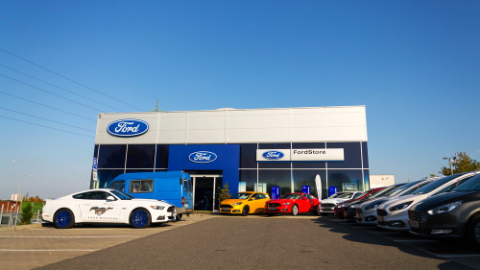
Ford Motor Company is working on methods of keeping self-driving vehicles free on insects, as they pose a significant challenge to self-driving cars as they can seriously interfere with the sensors’ ability to deliver reliable data to the vehicles.
“Over the last few years, Ford has been conducting some serious research into making sure our self-driving vehicles can always see the world around them, no matter what may try to get in the way,” says Venky Krishnan, Autonomous Vehicle Systems core supervisor, Ford Motor Company. “We’ve sprayed dirt and dust onto our self-driving vehicle sensors. We’ve showered LiDAR sensors with water to simulate rainfall. We created our own synthetic bird droppings and smeared it on camera lenses.”
Working with zoologist, Mark Hostetler, the company has created a “tiara” – a device that sits on top of the self-driving vehicles, holding the cameras, LIDAR, and radar that allows the vehicle to see where it is going. The “tiara” is used to funnel air near the camera lens creating an “air curtain” that helps to deflect bugs from hitting the sensor.
The results have been quite successful, but Ford is also installing a cleaning system that places nozzles next to the camera lens to spray washer fluid, as needed, to keep the sensors clean of any insects that get through. Software algorithms have also been integrated that allow the self-driving vehicle to determine when cleaning is needed. The cleaning system, when activated, will clean one or several sensors on the vehicle at a time. The “tiara” then dries the sensors by releasing air on the face of the sensor’s lens, keeping the system bug-free.
“As fun as some of this development may sound,” says Krishnan, “these are not features that would simply be nice to have when self-driving vehicles are ready to be deployed; they are critical functions that vehicles must be able to carry out on their own in order for safe deployment to be possible. Just as we must equip self-driving vehicles with the brains to process what’s happening in their environment, we must also equip them with the tools to deal with that environment – no matter what kind of gunk it decides to throw at them.”
